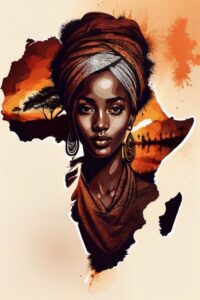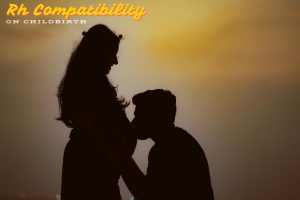
Wole Soyinka. Photo Courtesy
Wole Soyinka, the first African laureate to win the Nobel Prize in Literature, is a towering figure whose works address the complexities of identity, politics, and human rights.
His poetry reflects the rich tapestry of African experience while engaging with universal themes. Here are ten essential poems by Soyinka that every African should read, highlighting their significance and timeless lessons.
Best Wole Soyinka Poems
1. “Telephone Conversation”
In “Telephone Conversation,” Wole Soyinka deftly explores themes of racism and absurdity. The poem recounts a phone call between a black man and a white landlady discussing the rental of an apartment.
The landlady’s overt prejudice surfaces when she inquires about his skin color. This poem, published in 1963, critiques the absurdity of racism with wit and irony, reminding us that racial discrimination is both irrational and deeply entrenched in societal structures.
2. “The Lion and the Jewel”
Although primarily known as a play, Soyinka’s poem “The Lion and the Jewel” encompasses the duality of tradition and modernity in Africa. It presents the conflict between the village’s customs and the encroaching modern influences.
Through vibrant imagery, Wole Soyinka illustrates the struggle between preserving cultural identity and embracing change, urging readers to navigate this complex relationship with wisdom and respect.
3. “Abiku”
“Abiku” reflects on the Yoruba concept of a spirit child who repeatedly dies and is reborn. In this poem, Soyinka addresses themes of mortality, identity, and the cyclical nature of life.
It highlights the tension between the spiritual and the physical worlds, prompting readers to reflect on their own existence and the cultural beliefs that shape it.
The poem’s exploration of life and death remains relevant, emphasizing the universal human experience.
4. “A Story”
In “A Story,” Soyinka captures the essence of storytelling as a vehicle for truth and memory.
The poem delves into the importance of oral traditions in preserving history, culture, and identity. Soyinka’s poignant reflections remind us that storytelling is not merely entertainment; it is a means of understanding our past and shaping our future.
The poem encourages readers to appreciate the narratives that define their communities.
5. “Mythical Nigeria”
“Mythical Nigeria” serves as a powerful critique of colonialism and its lasting effects on African identity. In this poem, Soyinka challenges the perception of Africa as a foolish, backward continent.
He asserts that African culture is rich and multifaceted, steeped in mythology and history. This poem, ahead of its time in its rejection of colonial stereotypes, fosters pride in African heritage and resilience against external narratives.
6. “The Trial of Brother Jero”
While more famous as a play, “The Trial of Brother Jero” contains significant poetic elements that explore the theme of religion and morality in contemporary African society.
Through the character of Jero, Soyinka critiques the commercialization of faith and the exploitation of followers. This work resonates with readers grappling with the authenticity of religious institutions and their impact on personal beliefs, making it a relevant commentary on faith in today’s world.
7. “For My People”
In “For My People,” Soyinka honors the struggles of ordinary Africans, particularly in the face of oppression. The poem speaks to resilience and collective strength, celebrating the spirit of the people who fight for justice and dignity.
This work embodies the hope and determination that have characterized African liberation movements, urging readers to remain steadfast in their pursuit of freedom and equality.

8. “Rain”
“Rain” is a lyrical meditation on nature’s power and its connection to human emotion. Through vivid imagery, Soyinka draws parallels between the life-giving force of rain and the spiritual rejuvenation it brings.
The poem teaches us about the interconnectedness of humanity and nature, prompting a reflection on our responsibilities toward the environment. This ecological awareness is increasingly vital in today’s world.
9. “The Challenge of Civilisation”
In this poem, Wole Soyinka addresses the conflict between civilization and barbarism, particularly in the context of Africa’s post-colonial struggles. He argues for the necessity of critical thinking and moral responsibility in building a just society.
The poem’s call to action encourages readers to challenge oppressive systems and foster a culture of accountability, underscoring the importance of intellectual engagement in civic life.
10. “Death and the King’s Horseman”
Though primarily a play, the themes in “Death and the King’s Horseman” resonate powerfully in poetic form. It explores the clash of cultures and the consequences of colonialism on traditional practices.
The tragic conflict between duty and colonial interference highlights the complexities of cultural identity and the need for understanding in a multicultural world. Soyinka’s insights remain crucial in addressing contemporary issues of cultural preservation and respect.
Wole Soyinka’s poetry encapsulates the rich heritage of African thought, confronting issues of identity, colonialism, and human rights. His works are not only relevant for their artistic merit but also for the vital lessons they impart.
Through his exploration of cultural nuances and universal themes, Soyinka invites readers to engage with their identities and histories, making his poetry essential reading for every African.
As we navigate the complexities of modern life, Soyinka’s words serve as a guide, urging us to embrace our past while forging a brighter future.







